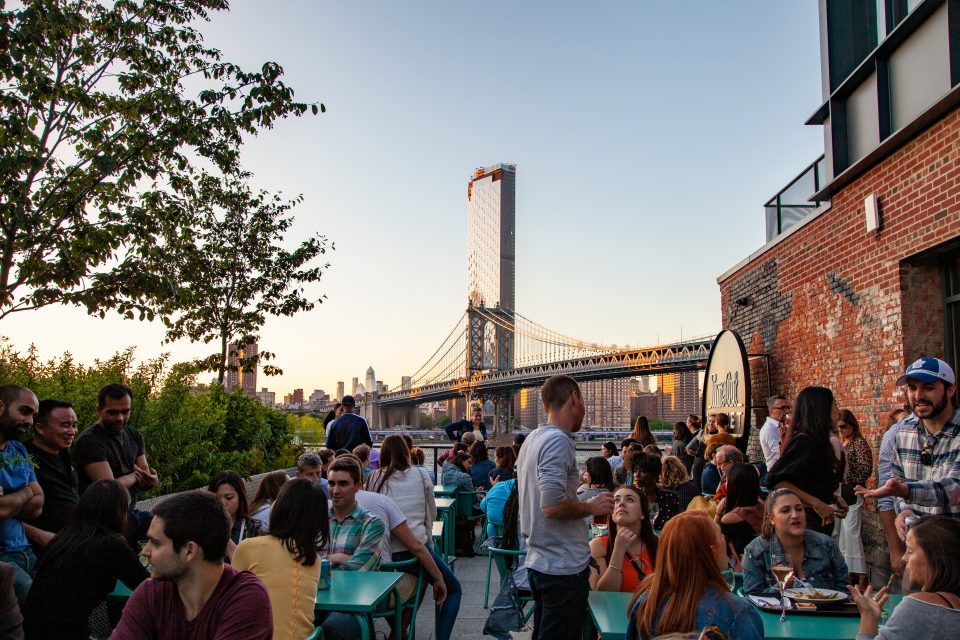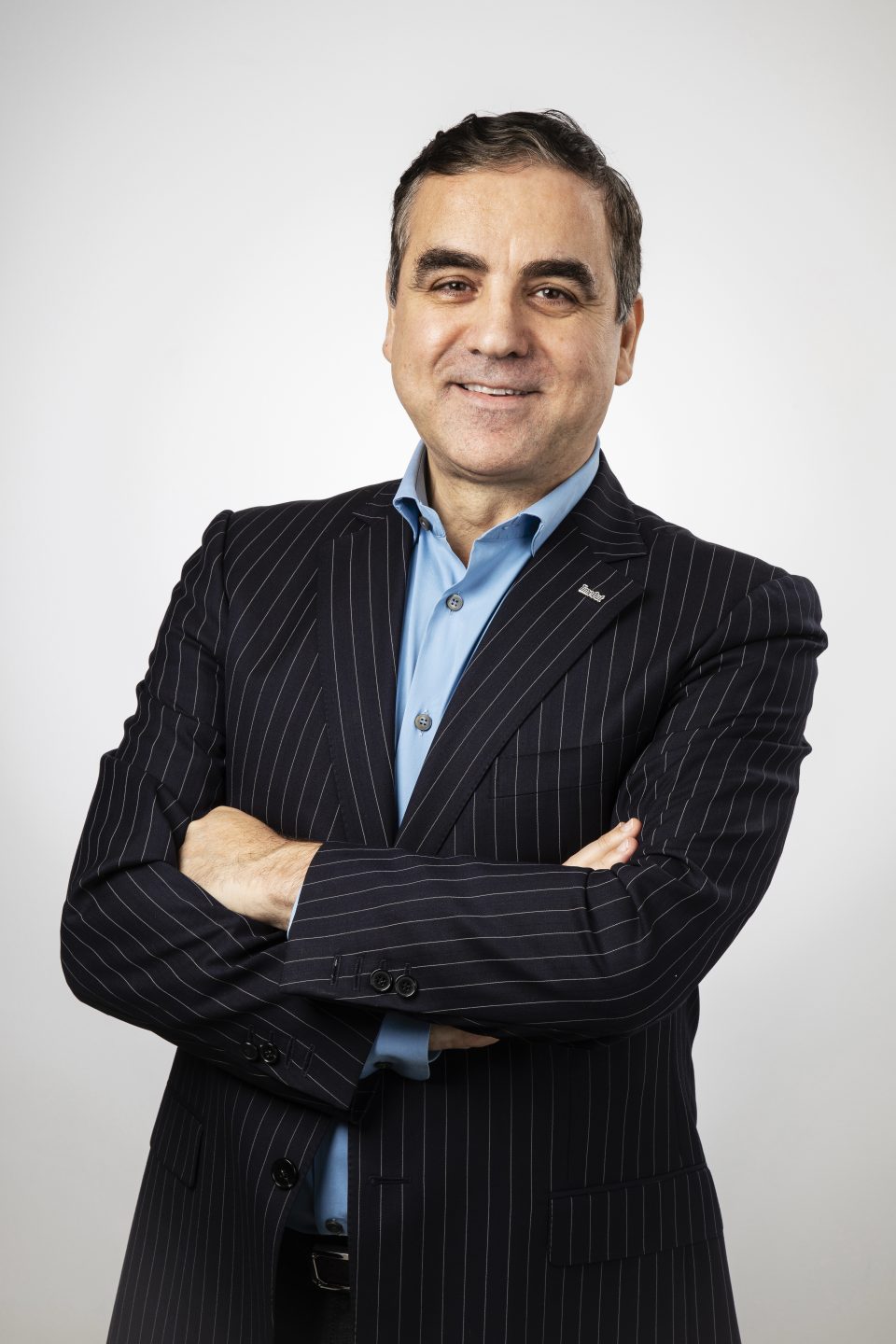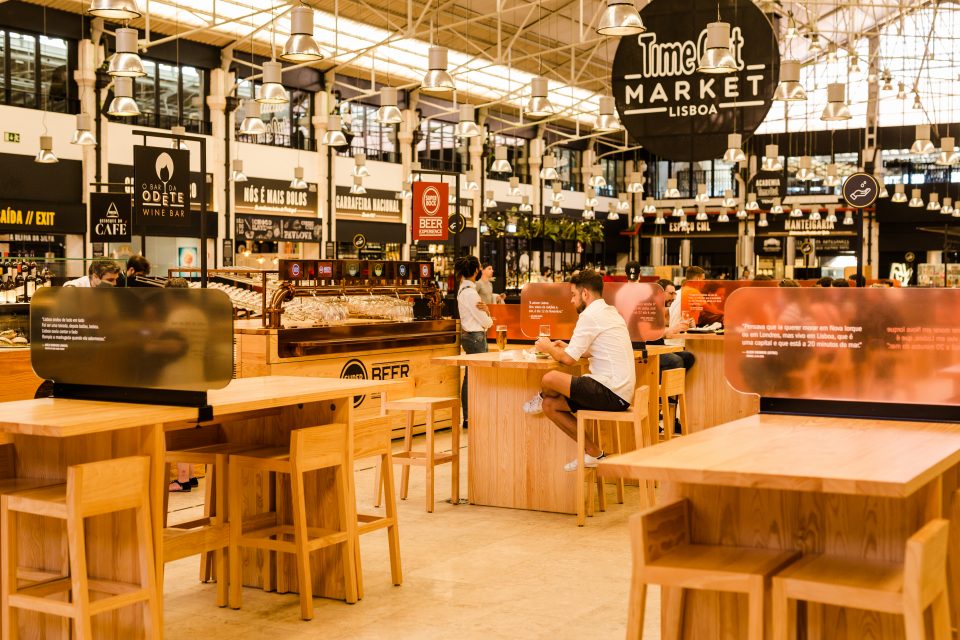Sunday Sitdown: Time Out boss Julio Bruno on the ‘renaissance’ of cities

While no one could have predicted the outbreak of coronavirus, few companies have been blighted by worse timing than Time Out.
In the face of shrinking revenue from its core events listings business, the media group has spent recent years shifting its focus to a new offering of food and culture markets.
But when the pandemic set in last March, FTSE-listed Time Out was forced to shutter its food halls. To make matters worse, the firm’s largely travel and leisure-focused magazine and website was hit by a record slump in advertising spend.
Despite this misfortune, though, cheerful chief executive Julio Bruno has high hopes that his company — and city centres more widely — will bounce back.
“We are expecting a renaissance post-Covid, a renaissance of culture and going out,” he tells City A.M. “I’m sure there’ll be much more appreciation of it.”
The Matrix Rejected
As successive lockdowns have forced millions of Brits to work from home, speculation has grown over whether city centres will ever return to pre-Covid normality. Moreover, the economic slump threatens to spark the collapse of thousands of hospitality businesses, leading MPs to warn of an “extinction” of nightlife and a new era of “ghost towns” across the UK.
But Bruno thinks reports of the death of the city centre are greatly exaggerated, insisting that human beings will always be “social animals”.
The media boss acknowledges that some changes are inevitable — such as increased mask-wearing on public transport and more flexible working styles — but dismisses suggestions that the pandemic will spell the end of metropolitan hubs.

“I don’t see suddenly a new world where everybody lives in the Matrix, where we’re living in a two-dimensional world instead of a three-dimensional world,” he says.
“You need a concentration of culture and arts for a reason — because that’s what people gravitate towards.”
Nevertheless, event listings and restaurant reviews in Time Out can only do so much. Bruno wants local authorities to launch major campaigns to promote attractions such as art and culture and entice people back into city centres after the pandemic.
A damning survey published earlier this month found West End arts and culture were most at risk from the pandemic with more than 26,000 jobs on the line, leading the City of London Corporation to urge London’s commercial and creative sectors to work together to revive the capital from the “cultural catastrophe” caused by Covid-19.
Mayor Sadiq Khan has also called for a post-war-style programme to help revive the capital’s economy.
“I think we will go back to what we like,” Bruno says. “It can’t just be Netflix and chill, sorry to say.”
‘Death by a thousand cuts’
But unlike many bosses with interests in the hospitality industry, Bruno is reluctant to call for a rapid reopening of the economy, insisting there is “no economy without health”.
“We have to make it right this time, continue with the sacrifice that we have, think about the real sacrifice for the people who have lost their lives,” he says.
“This is awful for Time Out, so clearly in my selfish interests I’d love to be open, but we can’t. We have to make this right.”
He is critical, though, of the government’s constantly changing restrictions and advice, which he describes as “death by a thousand cuts”.
“Leadership is about being very clear about what you want to do and what you want to achieve. We handled that very very badly.”
Nevertheless, Bruno is optimistic that the UK is back on a good footing thanks to the rollout of Covid vaccines, which he describes as “incredible”.
“Here you see the logistics, the engineering mentality of Britain coming through… we know how to do this in Britain.”

A gap in the market
While Bruno is bullish about cities in general (demonstrated by his decision to ink deals for new markets in the middle of a pandemic), he argues that the decline of brick-and-mortar retail is a permanent trend.
The pandemic has sparked the collapse of scores of big-name high street brands, while ecommerce rivals have thrived amid a shift to online shopping. The takeover of Philip Green’s Arcadia empire and Debenhams by Asos and Boohoo respectively is perhaps the greatest illustration of this fundamental shift.
“The high street was already suffering due to ecommerce, and what Covid has done is accelerated that so much,” says Bruno.
For the FTSE chief executive, though, this represents an opportunity. In addition to its media business, Time Out operates six food markets across the world. It has further new openings in the pipeline, including London Waterloo next year and Abu Dhabi in 2023.
The majority of these sites operate under management agreements, meaning Time Out licenses its brand to real estate operators. For developers left with empty retail spaces, Bruno says, new markets could provide an attractive opportunity.
“How do I attract footfall as a landlord? I have to find new solutions to that problem that was already there, but is now so much accelerated because of Covid,” he says.
“Landlords and developers around the world see Time Out markets as part of the solution, because you bring people there to something we all want to do, which is eat incredible food in a great environment with also all the cultural elements to it.”